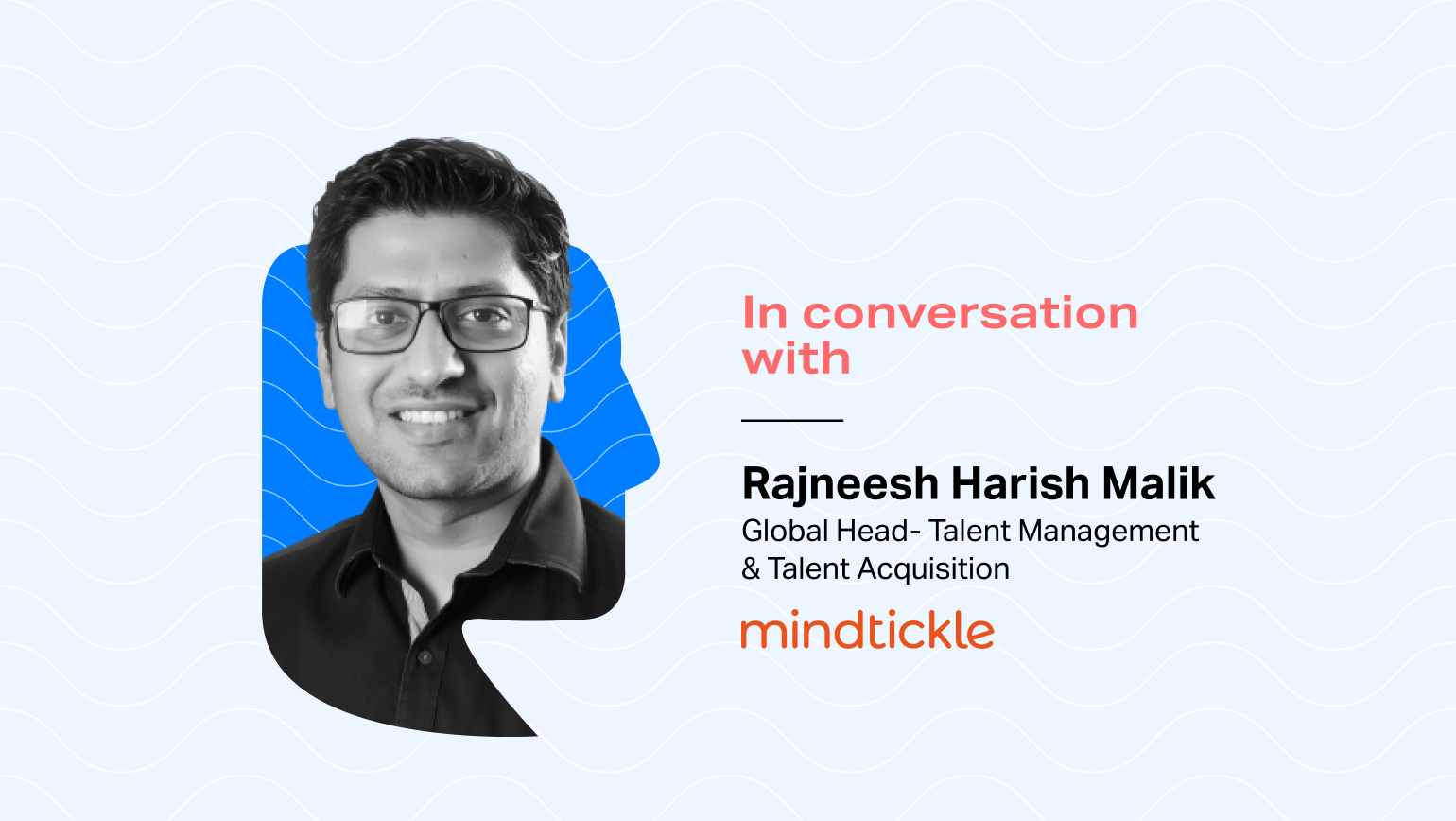 With Deepak Gupta CHRO, Karvy Group Services
With Deepak Gupta CHRO, Karvy Group Services
Building a culture of empowerment
He talks about challenges that HR faces while dealing with change management for tech transformation and how HR can deal with top performers by building a culture of empowerment.
Transcript
Hi Welcome to Dialogue with Darwin, It's a pleasure to have you talk to us about life in general and HR in specific.
Thank you for the invite.
So, what made you choose HR as a professional choice? And what has been the biggest high in this career for you?
So, being an HR head and I was fortunate to be an early HR head. So, for the last 10 to 15 years, I've been heading HR. And I've worked with multiple CEOs and multiple managing directors and very different perspectives each time. That that's the kind of high and, you build organizations with them. Great pride in building being part of Crysil, building as an organization. Then building Bajaj as an organization. Working with Karvy now, amazing place to be
Anchor: And so now as a CHRO OF Karvy you manage 30,000 plus employees. Multiple businesses, what are the few things that you keep in mind while managing that wider variety of people?
Deepak: So, yeah, very diverse. So, people come from different cross sections, different segments. businesses are very different models. So, you know, trying to make employee the center of our activity, trying to ensure that he grows with the organization by binding some of the values that we have. Now, this also comes with how you treat an employee and how you handle him. And hence we ensure that irrespective of the businesses we have, we have a central delivery system for the employees, and we try and reach out to these employees and try and bring in the commonality that is required for that business.
So, each business gets his independence and can freely do an act the way that, the market requires him to do.
Rohit: How do you deal with such a magnitude of high potential in each organization. Because they need to be dealt with separately. And what are things that you do for that?
Deepak: So, empowerment is amazing. I mean, the culture is amazing from an empowerment standpoint, honestly, we've given up on categorizing people, but if, if a guy is good, then I think we have examples of assistant managers who are executives. We have advisors who would call customers on what, what to buy today, doing equity research. So, we, we have given that kind of growth, wherever is possible.
Rohit: In your journey of across organizations, you've been trying to do this digitization work across the board, and we've seen it closely, then we worked right.
Rohit: And where do you think is the biggest gap?
Deepak: I think how we focus you are on driving; this is where the gap is.
What is the fire power or senior management focus is on digitalization. So one is that, how much focus do you give to it? Because it cuts both ways. So, if you have digitalization, you also are vulnerable, uh, to a lot of productivity and optimization issues and you see gaps. So, when you start the process, it becomes extra work, and nobody wants to do that extra work because they're all anywhere down in the usual. And that's the biggest stumbling block for me.
Rohit: We live in an age where an Uber driver gives you feedback. Through a rating. Right. But organizations have not moved there. Right. They've not gone to that extent where there are a lot of touchpoints, but all of this is recorded held, and it's not recorded. Basically. It's held to a point where that could be a bias or anything, and they're not integrated. So, you, they're not integrated, they're not talking to each other. Where do you see this going? Like if you have to envision a similar structure that happens in organizations, what do you think.
Deepak: So, I think it's about time, it's just a matter of time that that will come in. Somebody like Darwinbox, somebody who got a product who brings in a product like that gets implemented it's for you to plug and play that for us. Once it's part of a three, two process, and there is feedback to be given first is whether that automation is end to end, whether that automation is smart and it's about plugging all these cultural issues within. So, I don't think it's very far off.
Rohit: But as a technology exists, but do you think as a culture, whether it is India, Asia, or organization that are there are ready to take pure feedbacks are ready to take team feedback, which are bottom up or is there some gap that we need to travel still? So, this is inevitable and today I don't think I can run my office with my peers as ordinate, not being excited about. It's as simple as that. And if I don't get feedback on the motivation level of my guys, there's something that's wrong. So, I better kind of get a realization that their happiness index is as important, for me to survive in the organization. So even as I get feedback, when I can't improve and I also, if I don't improve, I'll not be able to build my brand and I will not be able to attract talent.
So, I think our guys all understand this is a matter. I think the core is to get a system and people will fall in place. I think the whole transparency data driven and all of it is democratic ideals. I don't and this is my point of view on how many organizations have become so democratic about how they function.
I think that's, that's where I see the gap. I think what you said is fair. I think changing managers is inevitable. Yeah. Uh, I think where we need to see is, uh, making sure that change, manage. That's great. Yeah. So that's all I heard. Uh, they worked wonderful talking to you. Thank you so much work.
Thanks for the session. Thank you
Nominate Myself
Nominate Someone Else
Your Sunday Watchlist
 With Rajneesh Malik
With Rajneesh Malik
Global Head- Talent Management & Talent Acquisition, MindTickle
In this interview, he talks about various aspects of organizational culture, hiring, his views on the importance of putting people at the heart of the business, and much more.
 With Augustus Azariah
With Augustus Azariah
Employee & Labor Relations Leader at Kyndryl
Listen to his insights on the ‘Future of Work,’ that much-debated topic – hybrid work, talent management and much more.
 With Chitbhanu Nagri
With Chitbhanu Nagri
Sr VP of People Operations at Razorpay
Listen to his insights on organizational culture, talent retention, and some learnings from his current role at Razorpay.
 With Priya Chakravarty
With Priya Chakravarty
Sr Director HR in Essar Capital
Listen to her insights on managing a distributed and diverse workforce in the hybrid work setup, and some interesting HR initiatives at Essar Capital.






